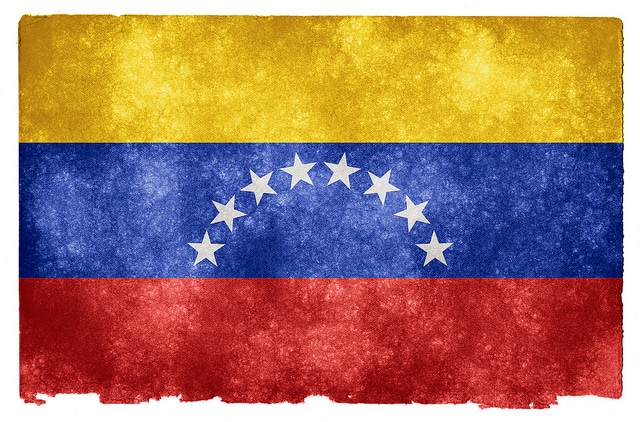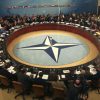
Andrés Ortega asks Simón Pachano ( Political scientist, lecturer and researcher of FLACSO Ecuador), Carlos A. Romero (Institute of Political Studies, Central University of Venezuela) and Juan Carlos Monedero (Professor of Political Science and Administration, Complutense University of Madrid and researcher at the Miranda International Center).
Simón Pachano | Political scientist, lecturer and researcher of FLACSO (Latin American Faculty of Social Sciences), Ecuador
A question like this is highly relevant in a globalised world in which the concept of sovereignty has substantially changed. But it has an even greater validity in a context such as Latin America’s, characterised by elements that create tensions and make it very difficult to find answers that go beyond the vagueness of good intentions.
A first issue to consider is the institutional and regulatory framework within which any effort from the outside to find a solution to the Venezuelan situation can and should be developed. The tangled web of bodies established for regional integration or as forums of dialogue for the countries on the continent have become more of a hindrance than a practical instrument for the purpose. The assignment of similar functions and powers to the OAS, UNASUR and CELAC, to name only the most visible, actually leads to their complete neutralisation.
Secondly, the Inter-American System of Human Rights (created in the framework of the OAS), which is without a doubt the most suitable place to deal with the situation, has been seriously weakened and is the victim of attacks by a small but efficient group of countries. Finally, the replication at the international level of the irreconcilable positions facing each other in Venezuela, leads to any effort to be interpreted as a form of intervention in favour of one of the sectors in conflict. This leaves very little room for those seeking mediation beyond their particular political preferences.
If such is the case, the outlook is clearly pessimistic and it could be concluded that the answer to the question is more or less ‘nothing’. However, there is a slight glimmer of hope that that this ‘nothing’ might become ‘very little’, which in itself would already be a breakthrough. This could come about if a group of countries manage to avoid replicating Venezuela’s internal polarisation and establish a channel for dialogue, as occurred in the settlement of conflicts in Central America in the 1980s. The problem is that the countries that could perhaps make this possible (namely Brazil, Chile, Mexico, Colombia and Peru) have so far have given no sign of wanting to do so.
Carlos A. Romero | Institute of Political Studies, Central University of Venezuela
There are several internal mechanisms to achieve peace: from the sharp divide of winners and losers in a civil war to the possibility of mediation by sufficiently prestigious national players. The international community could also play an important role by supporting a peace imposed by foreign intervention, or by resorting to the good offices of a multilateral agency, a group of countries, a non-governmental organisation or a group of influential personalities.
The truth is that, in a globalised system, any signs that a country is cracking under pressure cause the alarm bells to ring. Domestic crises can be described in a variety of ways, whether it be their most salient characteristics, the perceptions derived from geopolitical interests or the manipulation of the media. Venezuela is a case in point. From being a nation that exported peace on several occasions, it now draws international attention because of its internal polarisation, the hegemonic claims of its rulers and its many socio-economic problems.
What can be done from the outside to re-orient the country? There are a large number of accumulated precedents to which recourse can be made to support any kind of democratic initiative. To start with, the parties should be encouraged to find a place for dialogue. Secondly, the conditions must be sought for a consensus on an inclusive national project. At the same time, the people must be disarmed. Finally, social violence should be eradicated and the people’s economic well-being improved.
This is not at all easy. Those who are governing since 1999 are tightening their hold and their power is much like an oil-slick, which is spreading into and reinterpreting the country’s past, present and future. Will they be willing to talk?
Juan Carlos Monedero | Professor of Political Science and Administration, Complutense University of Madrid and researcher at the Miranda International Center
The current situation in Venezuela is the result of the refusal by a sector of the opposition to understand how mistaken its strategy is when confronting Chavism. Having been repeatedly defeated because of its inability to understand the country’s new situation, the opposition continues to insist on destabilisation as a way of gaining power, failing to realise that the majority of the population are opposed to such practices –although they are supported by a certain section–. As the accumulate defeat after defeat, they are opting for destabilisation instead –as commonly occurs in Latin America– of elections. Having no success either, their electoral possibilities are even further weakened.
The death of president Chávez in March 2013 was seen as a unique opportunity to overcome an electoral obstacle that had become insurmountable (except on one occasion, but with almost 20 elections being decisively won by Chavism). The latest attempt to slip out of Chavism were the municipal and state elections of March 2013. The surprise was that the Chavist parties ended up being 11.5% points ahead of the opposition Mesa de Unidad (MUD). It was at that point that a certain sector of the opposition, those closest to US strategy, decided to go for destabilisation in the streets.
In any event, if the opposition were not being given encouragement from the US and Europe –from both governments and the media– in its attempts to destabilise the country, the current state of affairs in Venezuela would be very different. The Organization of American States (OAS) recently rejected –by 29 votes to three– the US demand to look at the current conflict in such a way as to show support for those engaged in destabilising the country, who in fact have no popular credibility.
In Latin America the current conflict in Venezuela is considered an attempt at a ‘soft coup’. Europe, as in so many other occasions, has lost an excellent opportunity to engage with the new sentiment in Latin American and is merely cheering on an opposition that would like to stage a coup. The best way in which Europe can help would be to stop encouraging those who seek to get outside the elections what they find it impossible to achieve democratically in a country with one of the world’s most trustworthy electoral systems (according to the Carter Center). It should furthermore give its support to solving the type of structural problems that have already been resolved in Europe.
In order to encourage dialogue, the Spanish Embassy in Venezuela, in cooperation with research centres that are attuned to the various sensibilities at play, could –with the due authorisation of the Venezuelan government– organise an international seminar on democracy in the 21st century that might allow the various parties involved to come together and lay the foundations for an acceptable accord.


